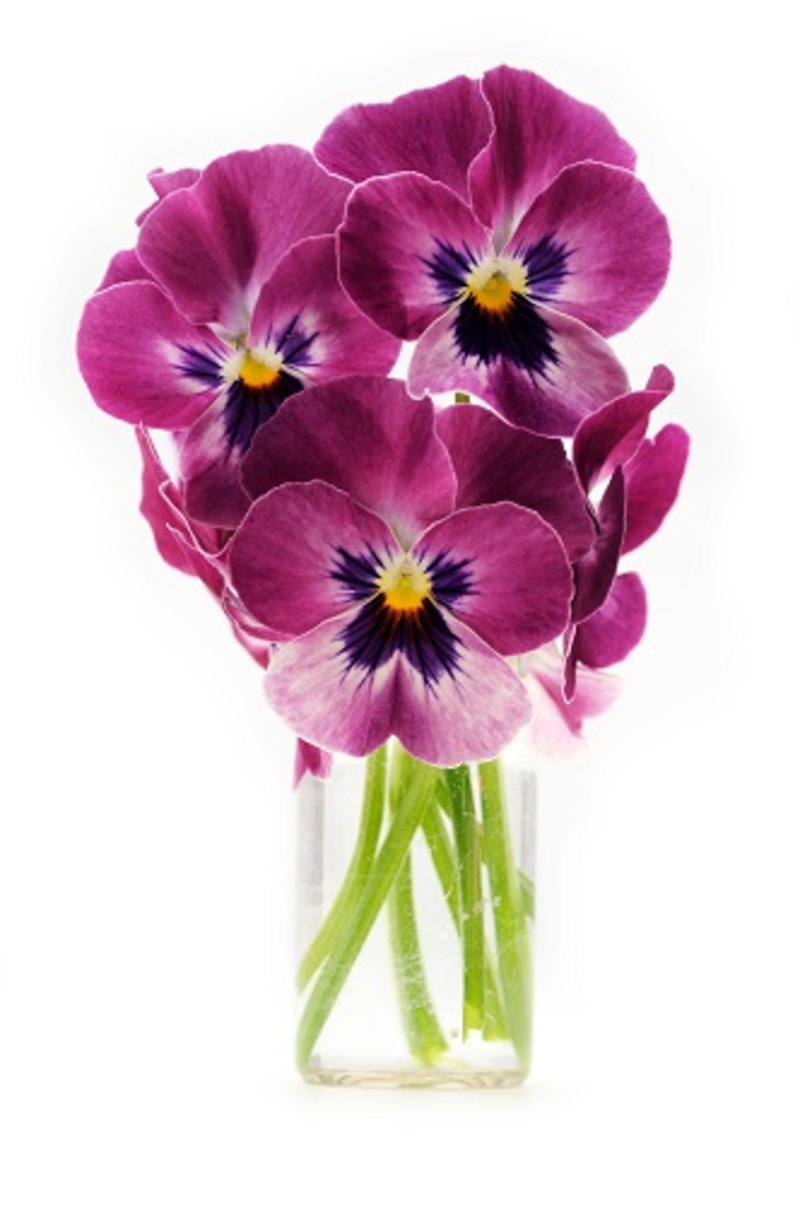How Does Your Birth Flower Reflect Your Inner Qualities?
Ever wondered if your birth flower says something meaningful about your personality? Just like astrological signs or birthstones, birth flowers hold symbolic significance that can reflect your inner qualities and characteristics. In this comprehensive guide, we'll dive deep into the world of birth flowers, discovering what each one can reveal about you, and how you can embrace their symbolism in your everyday life.

What Are Birth Flowers?
Birth flowers--specific blooms associated with each month of the year--carry with them traditional meanings and symbolism. While less well-known than zodiac signs, birth flowers can reflect unique aspects of your personality, strengths, and even your hidden desires. Originating from Roman times, the tradition of assigning flowers to months grew in popularity during the Victorian era, when floriography (the language of flowers) was a popular way to express feelings and messages.
Why Do Birth Flowers Matter?
From sweet-smelling violets to majestic lilies, birth month flowers are not only beautiful but also rich in meaning. Understanding your birth flower's symbolism can open the door to personal insights, greater self-awareness, and a deeper connection to nature's cycles.
Your Birth Month Flower and What It Reveals About You
Let's explore the birth flowers for each month, and uncover how they reflect your inner qualities and personality traits.
January: Carnation & Snowdrop
- Carnation: Carnations symbolize admiration, love, and distinction. If you're a January baby, you're likely known for your resilience, strong will, and compassionate nature.
- Snowdrop: These delicate blossoms stand for hope and new beginnings, indicating that January-born individuals possess an innate optimism and an ability to renew themselves in the face of adversity.
Your key traits: Resilient, loving, hopeful, and determined.
February: Violet & Primrose
- Violet: This delicate flower represents modesty, humility, and loyalty. As a February-born, you may be quiet and thoughtful--but fiercely loyal to those you love.
- Primrose: A symbol of young love and new beginnings, those associated with primroses are often seen as romantic, gentle, and nurturing.
Your key traits: Humble, loyal, romantic, nurturing.
March: Daffodil & Jonquil
- Daffodil: The cheerful daffodil symbolizes rebirth, joy, and inspiration. March-born individuals often radiate positivity and motivate others.
- Jonquil: With connotations of affection and desire, if this is your flower, you're likely warm-hearted and passionate, making people feel cared for.
Your key traits: Joyful, inspiring, affectionate, passionate.
April: Daisy & Sweet Pea
- Daisy: Symbolizing innocence and purity, daisy people are known for their sincerity, childlike wonder, and honest nature.
- Sweet Pea: Associated with blissful pleasure and gratitude, sweet pea individuals appreciate the little joys in life and value their friendships deeply.
Your key traits: Sincere, joyful, grateful, nurturing.
May: Lily of the Valley & Hawthorn
- Lily of the Valley: This fragrant bloom stands for sweetness and humility. May-born people exude gentle kindness, honesty, and a sense of hope.
- Hawthorn: Signifying happiness and contentment, hawthorn individuals are seen as supportive and loyal friends.
Your key traits: Kind, humble, Loyal, supportive.
June: Rose & Honeysuckle
- Rose: With its deep symbolism of love, passion, and beauty, June-borns often embrace life fully, express their emotions openly, and value deep relationships.
- Honeysuckle: This flower symbolizes devotion and affection, indicating a warm-hearted and steadfast character.
Your key traits: Passionate, devoted, affectionate, expressive.
July: Larkspur & Water Lily
- Larkspur: Symbolizes positivity, dignity, and an open heart. July individuals are hopeful, imaginative, and enjoy connecting with people.
- Water Lily: This bloom stands for purity and enlightenment, hinting at a spiritual, calm, and wise personality.
Your key traits: Optimistic, dignified, wise, compassionate.
August: Gladiolus & Poppy
- Gladiolus: Stands for integrity, strength, and moral character. People with this birth flower are courageous, independent, and driven.
- Poppy: Signifies imagination, rest, and remembrance. August-born individuals are often creative and introspective.
Your key traits: Courageous, imaginative, independent, thoughtful.
September: Aster & Morning Glory
- Aster: Represents wisdom, patience, and elegance. September babies are typically thoughtful, studious, and kind.
- Morning Glory: Symbolizes affection and new beginnings, making you adaptable and loving.
Your key traits: Wise, patient, affectionate, adaptable.
October: Marigold & Cosmos
- Marigold: Associated with creativity, passion, and warmth, marigold people brighten up any room and love to take the spotlight.
- Cosmos: Represents order, harmony, and peace. October-borns gravitate towards calm and seek balance in their lives.
Your key traits: Creative, passionate, warm, balanced.
November: Chrysanthemum
- Chrysanthemum: Stands for loyalty, friendship, and joy. November-born people are social, reliable, and bring cheer wherever they go.
Your key traits: Loyal, friendly, cheerful, positive.
December: Narcissus & Holly
- Narcissus: This winter-blooming flower symbolizes hope, wealth, and respect. December individuals are often optimistic, generous, and well-respected.
- Holly: Associated with protection and domestic happiness, holly people care deeply about their loved ones' wellbeing and maintaining harmony at home.
Your key traits: Hopeful, generous, protective, harmonious.
How Birth Flowers Can Influence Your Life
Understanding the personality traits reflected by your birth flower allows you to connect with your strengths, set positive intentions, and navigate your personal growth. Here are a few ways you can use your birth flower as a guide in your daily routine:
- Self-awareness: Reflect on your birth flower's qualities and how they resonate with your actions and decisions.
- Decoration: Display your birth flower at home or work as a daily reminder of your unique inner qualities.
- Gifting: Give loved ones their birth blooms to celebrate their individuality and personal strengths.
- Inspiration: Use symbols of your birth flower in journaling or vision boards to anchor intentions and foster growth.
The Science Behind Flower Symbolism and Personality
While birth flower meanings are rooted in tradition rather than scientific methodology, their symbolism can influence our self-image and behavior. This is similar to how wearing a birthstone or reading daily horoscopes can affect your mindset by increasing self-reflection and mindfulness. Studies suggest that people who ascribe meaning to symbols or rituals (like birth flowers) often enjoy stronger self-esteem and a more positive outlook on life.
Comparing Birth Flowers Around the World
Did you know that birth flowers can vary by culture and tradition? In Japan, "Hanakotoba" is the special language of flowers, while in the West, floriography was used extensively in Victorian times. Some cultures might assign different flowers or meanings to certain months, adding layers to the symbolism that can reflect different aspects of your inner qualities.
- Japan: Cherry blossoms symbolize the fleeting nature of life and embody grace and mindfulness.
- UK: Holly is December's flower and reflects domestic happiness and protection.
- USA: Carnation, the birth flower for January, stands for love and admiration.
Exploring how your birth flower is viewed globally adds new depth to its meaning and personal significance.
Frequent Questions about Birth Flowers & Personality
Are birth flower meanings scientifically accurate?
The symbolism of birth flowers is not based on scientific evidence, but on folklore and cultural tradition. However, reflecting on these meanings can promote mindfulness and introspection, strengthening your sense of identity and self-connection.
Can I use any flower's traits as inspiration?
Absolutely! While your birth flower offers special symbolic ties, you can draw inspiration and strength from the symbolism of any bloom that resonates with you. The language of flowers is as flexible and creative as you are.
Is my birth flower the same as my zodiac flower?
No, although there is sometimes overlap, zodiac flowers are connected to your astrological sign, while birth month flowers are based on the calendar month. Each system uses different symbolism to interpret personality traits and qualities.

Embracing Your Inner Qualities Through Your Birth Flower
Your birth flower is more than just a beautiful bloom--it's a symbol of who you are and what you can become. By understanding what your birth flower says about your inner qualities, you can embrace your strengths, cultivate self-love, and foster positive growth.
- Display your birth flower in your workspace for daily motivation.
- Meditate on your flower's meaning to unlock hidden talents or overcome challenges.
- Share the gift of birth flowers to connect more deeply with friends and family.
Conclusion: Let Your Birth Flower Guide Your Self-Discovery
From the humble violet's loyalty to the rose's passionate spirit, your birth flower reflects inner qualities that make you truly unique. By learning about the symbolism and meaning behind your birth month flower, you gain deeper insight into your strengths, potential, and even the areas where you can grow.
Let your birth flower remind you to celebrate your individuality, nurture your self-development, and bloom into the best version of yourself.

